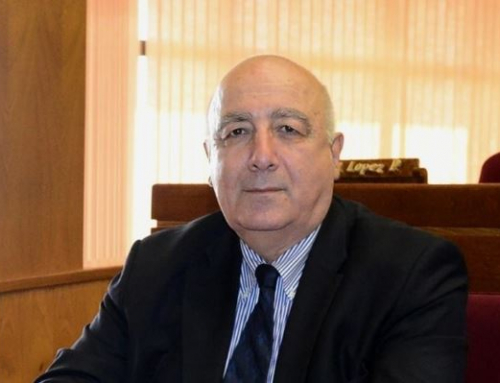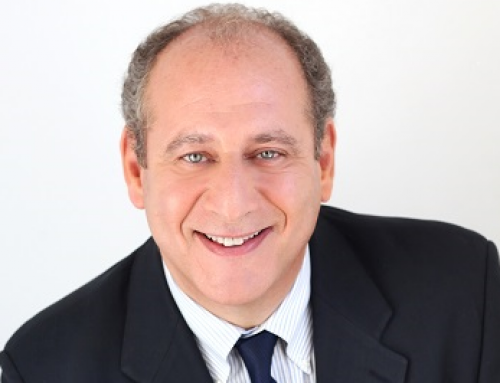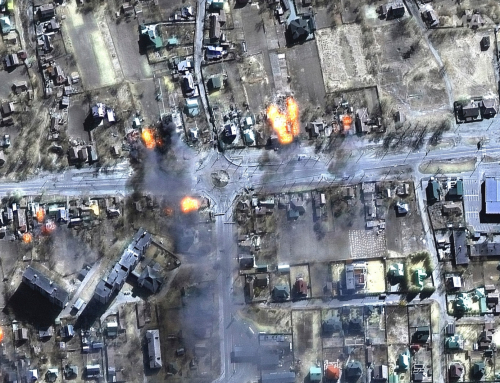A couple of days ago the Government of Georgia denied the Georgian billionaire Bizdina Ivanishvili the Georgian citizenship for which Mr. Ivanishvili, a child of Georgian parents, one who was born, grown up and educated in Georgia, applied in early January 2012. A huge number of Georgians believe that the denial was illegal and the Government’s decision was politically motivated. It is further believed that this way the Government sought to disallow the richest man in Georgia to run for office in parliamentary elections due in October 2012.
Background
By the time of the downfall of the former Soviet Union, Mr. Ivanishvili had lived in the Russian Federation. When the Soviet Union broke up, Mr. Ivanishvili automatically became a Russian citizen.
In early 2000s, Mr. Ivanishvili returned to Georgia and has permanently lived there ever since. In 2004, the Georgian President Mikheil Saakashvili granted him a Georgian citizenship by means of exception.
In Georgia, dual citizenship is banned by the Constitution. However, the Constitution entitles the country’s president to grant, at his sole discretion, a Georgian citizenship to a foreign national if the latter “has a special merit before Georgia” or granting the citizenship to such person” is due to State interests”. Nobody questioned at that time that if anybody had a special merit before Georgia, Mr. Ivanishvili was the one. By now he has donated over $1 billion to various Georgian civic causes, including millions in direct budget support to the Georgian government, army and police force.
However, the Government’s attitude towards Mr. Ivanishvili changed overnight in October 2011 when Mr. Ivanishvili proclaimed that he had decided to form a political party and run for office. In an almost immediate response, President Saakashvili deprived him and his wife of their citizenship which had been granted to them by Saakashvili himself.
After a short while, the first-instance court of Tbilisi repealed the president’s decision with respect to Mrs. Ivanishvili but upheld the same decision with respect to Mr. Ivanishvili. The case has still been pending in the appeals court of Tbilisi.
Application for Naturalization
In early January 2012, Mr. Ivanishvili filed an application with the Civil Registry Agency (CRA) for naturalization. Under the Georgian law, the CRA has a duty to prepare recommendations for the president of Georgia regarding such applications. The final say belongs to the president.
In his application, Mr. Ivanishvili indicated that at the time of filing the application, he had already renounced the Russian citizenship and had applied for the withdrawal from the French citizenship as well. Appropriate evidence was enclosed with the application.
Naturalization was not the only option for Mr. Ivanishvili. Another one was to apply for citizenship under the “granting” procedure allowed by the above-mentioned Constitutional exception. However, Mr. Ivanishvili was advised by his lawyers to take the first option. There were at least two reasons for that.
Firstly, it is a discretionary power of the president to grant or not to grant Georgian citizenship to a foreign national. As mentioned above, such a person may be granted citizenship if he/she has a special merit before Georgia or granting the citizenship to him/her is due to State interests. But the president is the only person who may decide whether or not an applicant meets any of those criteria. The president has no duty to substantiate his/her choice between the two alternatives; the decision may not be appealed; and the president may not be held accountable for his/her decision.
By contrast, when the president is called to make decision on naturalization, he/she has no power to decide as he/she pleases. Much rather he/she should make decision in accordance with the conditions specified by law. If those conditions are met by an applicant it is the president’s duty, not just a privilege, to make a positive decision. The decision should be a reasoned one and the applicant has a right to appeal it in a court of law.
Secondly, as was already mentioned above, back in 2004 President Saakashvili granted the Georgian citizenship to Mr. Ivanishvili and his wife. But in October 2011, he stripped both of them of the citizenship of the country of their birth. Since then Mr. Ivanishvili and his allies have constantly been denounced by the Government’s propaganda as “dark forces”, “Moscow’s agents” and the like. Under such circumstances it would be illogical and unreasonable to believe that the president would acknowledge Mr. Ivanishvili’s merits before Georgia and/or any State interest in Mr. Ivanishvili’s being granted the Georgian citizenship on an exceptional basis.
Government’s “Justification” of Denial
After the completion of exactly three months following the filing of his application by Mr. Ivanishvili, the CRA released its decision to decline Mr. Ivanishvili’s request of naturalization. The official justification of denial was that Mr. Ivanishvili, as a citizen of France, was not eligible for naturalization but instead he should have applied for double citizenship under the granting procedure.
The CRA’s “justification” is in obvious conflict with Article 33(a) of the Organic Law on Georgian Citizenship which specifically provides that the president has a power to decide on allowing foreign nationals and stateless persons to obtain Georgian citizenship. Under Article 10(b) of the same law, “obtaining citizenship” is synonymous with “naturalization”.
There are some more legal provisions which leave no doubt that the CRA blatantly violated the Georgian law by ruling that a foreign national could not apply for naturalization.
Article 26 of the above Organic Law sets forth the four conditions which should be met by an applicant if he/she wishes to obtain the Georgian citizenship by means of naturalization:
(a) he/she should have lived in Georgia for the last 5 years;
(b) he/she should know the official language (Georgian) to a certain degree;
(c) he/she should know the Georgian history and elements of the Georgian law to a certain degree;
(d) he/she should have job or real property, or be involved in business activities in Georgia, or own any interest or shares in a Georgian business entity.
The above conditions do not include any requirement that an applicant for naturalization should not be a citizen of another state.
The law also specifies some more conditions which, if existed, would preclude an applicant from obtaining the Georgian citizenship. In particular, under Article 261 of the Organic Law an application for naturalization will be declined if the applicant:
(a) has committed an international crime against peace and humanity;
(b) has taken part in a crime against State;
(c) from the point of view of the State and/or public security it would be inexpedient that he/she obtained the Georgian citizenship.
Like Article 26, Article 261 too does not indicate that a foreign national may not apply for naturalization.
In addition to the Organic Law on Georgian Citizenship there is one more relevant legal act that provides some more guidance on the matters of citizenship. We are referring to Presidential Decree #34 of 30 January 2012. Article 11(2) of the above Decree requires the CRA to advise an applicant for naturalization that at the time of obtaining the Georgian citizenship he/she should renounce the citizenship of another state. Why would the law set such a requirement if the CRA’s claim that a foreign national may not apply for the Georgian citizenship was true? There is no reasonable answer to this question.
Furthermore, Presidential Decree #34 contains Attachment 2 which represents an official form of application to be filled by an applicant willing to obtain the Georgian citizenship by means of naturalization. Item 4 of the above form contains a question whether an applicant is a citizen of any other state. Item 11 requires the applicant to declare that he/she will renounce his/her current citizenship if the application for Georgian citizenship is granted. Why would the official legal form require an applicant to make a commitment that he/she would give up his/her current nationality if his application for naturalization was granted, if the CRA’s claim that a foreign national may not apply for the Georgian citizenship was true? Again there is no plausible answer to this question. By the way, when Mr. Ivanishvili filled this application, he answered Item 4 by stating that he was a French national. Moreover, in Item 11 he made a declaration that he would renounce his French citizenship should his application for the Georgian citizenship be granted.
In fact, what the CRA was obliged to do under the Georgian law is that it should have checked whether Mr. Ivanishvili could meet the conditions set forth in Article 26 of the Organic Law and whether there were in place any conditions specified in Article 261 which could have led to the rejection of application for the Georgian citizenship. One must assume that the CRA had no reason to decline Mr. Ivanishvili’s application on any grounds set forth in the above articles and this is exactly why it invented some artificial, arbitrary and ill-founded motive to deny the Georgian citizenship for Mr. Ivanishvili.
President’s Failure to Perform His Duty
It is stated in the CRA’s decision that Mr. Ivanishvili may appeal it in the court. In addition, the Georgian president’s spokeswoman publicly stated that the president was not going to make his decision on this issue claiming that he had no duty to do so.
However, the above-mentioned Article 33 as well as some other provisions of the Organic Law expressly provide that it is the president of Georgia who should make a final decision on all matters related to the Georgian citizenship.
So far the president has not delivered his decision. If he does not deliver one in the near future it will mean that he has refused to perform his duty under the Georgian law.
Government’s Invitations to Apply for Dual Citizenship
The Government propaganda claims that Mr. Ivanishvili might be granted the Georgian citizenship if he applied for dual citizenship. We already discussed the weaknesses of such an approach above. Furthermore, had the Government and personally President Saakashvili been really ready to grant Mr. Ivanishvili the Georgian citizenship, he would have admitted his defeat in a legal dispute currently pending in the appeals court, would have acknowledged Mr. Ivanishvili’s claim to repeal the presidential decree of 11 October 2012 whereby Mr. Saakashvili stripped Mr. Ivanishvili of his citizenship and, thereby, would have restored the status quo ante. But the point is that the Government, by suggesting such a useless strategy, seeks, on the one hand, to put Mr. Ivanishvili on a wrong track, and, on the other hand, to reduce the public indignation with the Government’s decision to decline Mr. Ivanishvili’s application for the Georgian citizenship.
Having said that one should not forget one more reason why this should not be done. The Organic Law on Georgian Citizenship says that after the rejection of application for citizenship, the applicant may not reapply during next six months. This means that till October 2012 Mr. Ivanishvili is not allowed to reapply for citizenship under any procedure. October is the month when general election should be held.
Government’s Attempts to Discredit Mr. Ivanishvili’s Lawyers
For several days since the proclamation of the CRA’s decision, the Government’s propaganda has been attacking Mr. Ivanishvili’s lawyers claiming that they had given a wrong advice to Mr. Ivanishvili by encouraging him to apply for naturalization instead of opting for a citizenship granting procedure.
I hope that the above facts and notes helped somehow the readers to realize who actually made a mistake and who has been trying to fool the public by shamming the provisions of law.






Leave A Comment
You must be logged in to post a comment.